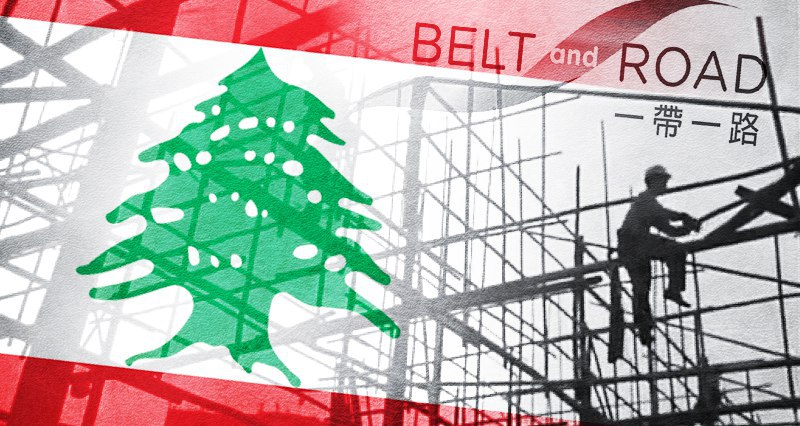BY ALİ RIZA TAŞDELEN
Our world is experiencing the pain of the transition from a unipolar world to a multipolar world. The confrontation between the Atlantic and Eurasian forces has been heating up in the Eastern Mediterranean for the past year.
It is not possible to consider the terrible explosion that took place in Beirut without taking into account the context of this conflict.
US and France hegemony is breathing its last breath, and is being defeated in Iran, Syria, Lebanon, Cyprus, Libya, and Turkey, countries which are currently being targeted by the Atlantic forces.
The West Asian countries are forming a stronghold of resistance against the US and their collaborators France, Britain and Israel.
The port of Beirut was a gateway to West Asia in the Eastern Mediterranean. It is also an important gateway for China’s “Belt and Road” initiative in the Mediterranean.
What caused the explosion? There are a lot of theories floating around. Instead of listing these claims, I think it would be more appropriate to evaluate how the explosion came about, step by step, by looking at the facts.
Dr. Marwa Osman: “There’s anger on the streets of Beirut after the explosion”
DESTABILIZATION AND ECONOMIC CRISIS
Lebanon’s economy was destroyed after the 1975-1990 civil war and the conflict between Israel and Hezbollah in 2006. The effects of the imperialist attack against neighboring Syria in 2011 and the US sanctions that followed only added to the devastation.
The so-called “international support conferences for Lebanon” in Paris hosted by France were a complete fiasco. France was looking to the IMF for a solution, of course, provided that the IMF realizes the “reforms” it demands.
As a result of the economic crisis and demonstrations against the government’s tax policies across the country, the government under the prime ministry of Saad al-Hariri resigned on October 29, 2019. On January 21, 2020, a new government was formed under the presidency of Hasan Diyab, who is also supported by Hezbollah.
Negotiations with the IMF were inconclusive, since the impositions by the IMF’s political handlers, the US, France and Britain, were not fulfilled. Meanwhile, over $30 billion was smuggled out of the country.
Half of the Lebanese population lives below the poverty line, resulting in regular political demonstrations. The country was being dragged into civil war, step by step.
NASRALLAH: LET US TURN TOWARD CHINA AGAINST THE IMF
In his statement on June 16, Hassan Nasrallah, the Secretary General of the Lebanese Hezbollah, stated that the US wanted to cause disorder in Lebanon with the implementation of “the Caesar Syria Civilian Protection Act” and that Washington was trying to impose neo-liberal IMF reforms via sanctions.
Nasrallah said that the way out of the crisis is to turn to China: “When we discussed the possibility of cooperation with China, we saw that the United States reacted angrily, especially through Secretary of State Mike Pompeo and American Ambassador Dorothy Shea”; he evaluated this kind of cooperation as Lebanon’s potential liberation from America.
In his article titled “Who profits from the Beirut blast?” on asiatimes.com, Pepe Escobar wrote: ‘In stark contrast to the interests of the US/France/Saudi axis, Plan A for Lebanon would be to progressively drop out of the US-France stranglehold and head straight into Belt and Road as well as the Shanghai Cooperation Organization. Go East, the Eurasian way. The port and even a great deal of the devastated city, in the medium term, can be quickly and professionally rebuilt by Chinese investment. The Chinese are specialists in port construction and management.”
https://unitedworldint.com/4983-turkey-and-china-one-road-one-belt-project/
AGAINST THE US
After Nasrallah’s statement against the United States, the US Ambassador to Lebanon Dorothy Shea spoke to Saudi Arabia’s Al-Hadath: “I am seriously concerned about the role of a terrorist organization preventing some economic reforms.” As a result, Tyr interim judge Mohammed Mazeh banned the press, including foreign journalists in the country, from interviewing Shea.
MEETING WITH THE CHINESE AMBASSADOR
Chinese Ambassador to Lebanon Wang Kejian and Lebanese Prime Minister Hasan Diab, who resigned last week, had met in Beirut on September 3.
According to the Lebanese daily Al-Akbar on September 7, this meeting led to “Diab’s announcement that Lebanon was ready to receive Chinese messages and put them into action.” The newspaper published 2 letters from China to the Lebanese government, saying “Despite the financial crisis, 10 major Chinese companies approved their willingness to invest in infrastructure projects in Lebanon.” The letter lists the work that needs to be done: “Establishing a railway line from north to south, building Beirut’s massive public transport system and Beirut tunnel for rail or international road”.
FRANCE, THE SPOKESMAN OF THE ATLANTIC CAMP
On July 22, French Foreign Minister Jean-Yves Le Drian arrived in Beirut. He met with Lebanese Foreign Minister Nasif Hitti and Lebanese President Michel Avn. In fact, he did not say anything different than he had in his previous meetings; “Reform, otherwise you will not receive money from us (IMF).” He continued saying: “Let us not fool ourselves, there is no alternative to Lebanon out of the crisis other than the IMF.”
The blast took place on August 4, and French President Macron was in the explosion zone in Lebanon two days later. Like a colonial ruler, he started to use the post-explosion situation to his advantage, pushing for “political, economic and social regime change in Lebanon”.

















Leave a Reply